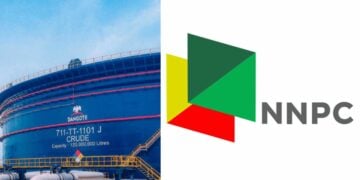The Organisation of the Petroleum Exporting Countries (OPEC) has raised Nigeria’s oil production quota from the 1.772 million barrels per day (mbpd) target approved in June to a new target of 1.799mbpd for July.
This is following the OPEC+ agreement to ramp up global oil supply, yielding to western pressures to pump more oil.
The decision was reached at the 29th OPEC and non-OPEC ministerial meeting held yesterday.
This is as the federal government has declared that Nigeria cannot ignore its vast proven gas endowments, put at 209 tcf, with 600 tcf potential reserves, in the face of huge energy poverty, insisting that natural gas remains the only viable option currently on the table.
Minister of state for Petroleum Resources, Timipre Sylva, who stated this at the ongoing Nigeria-Africa Natural Resource and Energy Summit, in Abuja, noted the need for Africa to stand together to weather the climate change storm while avoiding losing all recent gains in the quest to pull her vast population out of energy poverty, and hence economic poverty.
In the production output increase, OPEC said in a statement, its members and allies have a new target, which is 27,000bpd higher than the approved quota for June.
According to the statement, OPEC+ also adjusted upward the monthly overall production by 648,000bpd for the month of July with a target production of 43.206mbpd.
The move aims to offset Russian output losses to ease surging oil prices and inflation and smooth the way for an ice-breaking visit to Riyadh by U.S. President Joe Biden.
The group decided to add 648,000 bpd of oil to the market in July and August – up by 216,000 bpd – from 432,000 bpd in recent months.
The decision comes as some OPEC members reportedly nudged the alliance to exempt Russia from its oil output targets, paving way for major oil producers like Saudi Arabia and the United Arab Emirates to pump more oil.
Meanwhile, Nigeria’s minister of state, petroleum resource, Timipre Sylva, who described the theme of the Summit ‘Towards a Greener Africa’ as very apt and timely, noted that Natural gas is widely seen as a low carbon-emitting energy source that could play a major role in the energy transition quest.
“In particular, Natural gas is widely seen as a low carbon-emitting energy source that could play a major role in the energy transition quest. Natural gas is known to emit 30 per cent less CO2 compared to oil, and almost 70 per cent less compared to coal, for an equivalent amount of energy supply. It is well-positioned to become the dominant fuel for generating power worldwide. It is worth noting that the European Commission is making a move to classify Nuclear and Natural Gas energy sources as ‘green’
“Nigeria has already made a strong commitment to embracing energy transition, pledging to significantly reduce its greenhouse gas emissions under the Paris Agreement on Climate Change. This is in addition to the commitment Nigeria made through His Excellency President Muhammadu Buhari, at COP 26 in 2021 to attain carbon net-zero by 2060.
“Nigeria is following a transition pathway that combines technology, investment, business strategies, and government policy that will enable Nigeria to transit from its current energy system to a low-carbon energy system with natural gas playing a pivotal role.
“Nigeria needs affordable, reliable and sustainable energy resources to eradicate the prevalent energy poverty in the shortest time possible, and propel economic growth. The only viable option currently on the table is natural gas, considering our vast proven gas endowments, put at 209 tcf, with 600 tcf potential reserves. We cannot ignore this resource, especially when energy poverty is viciously staring at us” he said.
Sylva stated that as of today, energy poverty is still much prevalent in the world, especially in Africa where millions of people still do not have access to electricity or clean cooking fuels.
According to him, based on the UN data, about 760 million people lack access to electricity worldwide, with 3 out of 4 of them living in sub-Saharan Africa, adding that one-third of the world’s population – about 2.6 billion people – have no access to clean cooking fuels, with over 900 million of these in sub-Saharan Africa.
He noted that on average, only 48% of the sub-Saharan Africa population has access to electricity, while only 18% have access to clean cooking fuels, compared with a global average of 90% and 70%, respectively.
“About CO2 emission, World Bank statistics show that the world average of CO2 emissions was 4.48 metric tons per capita in 2018, with some regions and individual countries recording five to seven times this value. Emission by sub-Saharan Africa in total was only 0.76 metric tons per capita.
“The implication of the above is that the issues surrounding energy poverty, climate and sustainable development are not mutually exclusive. Consequently, the approaches to attending to these issues should not be disconnected. Climate change is definitely of serious concern to Africa.
But of equal concern is the alarming level of energy poverty. Both must be addressed sustainably. It must be a win-win situation” he said.





